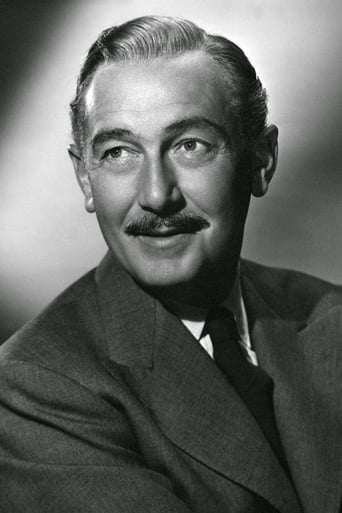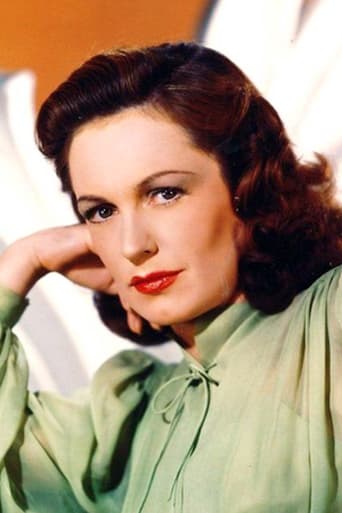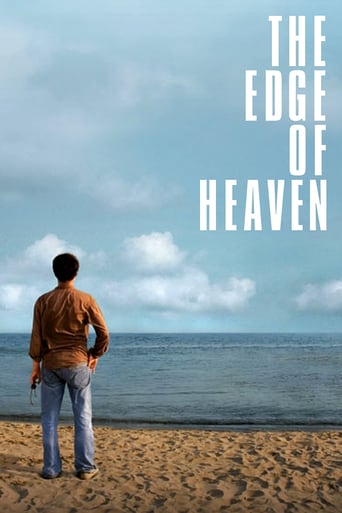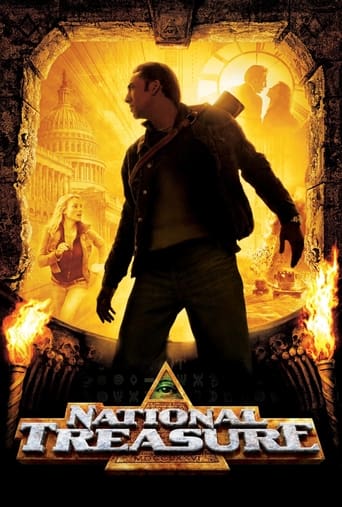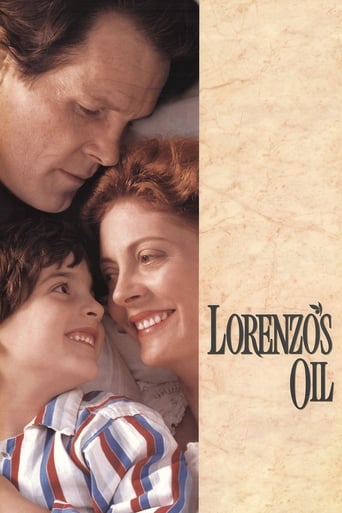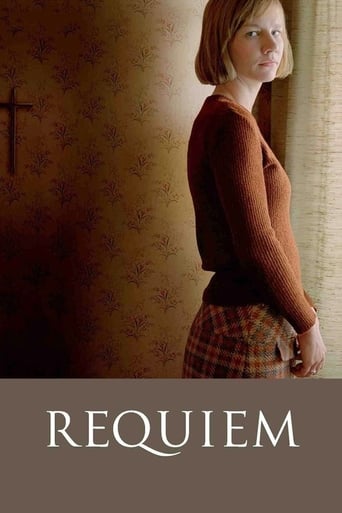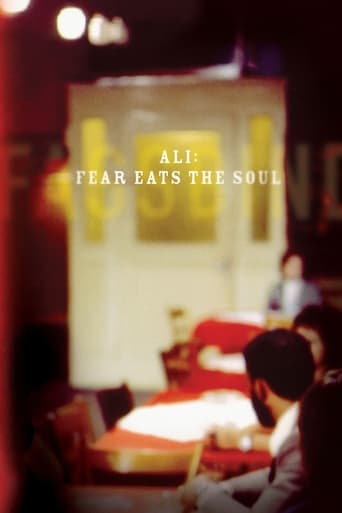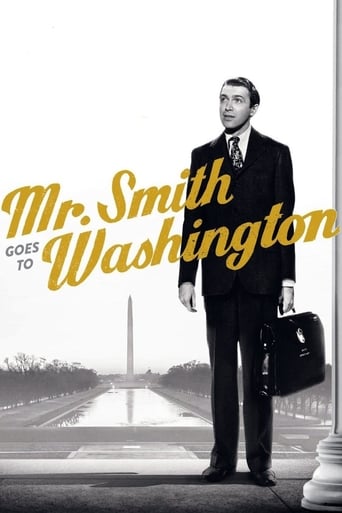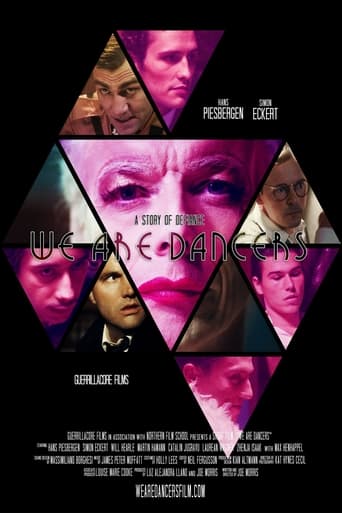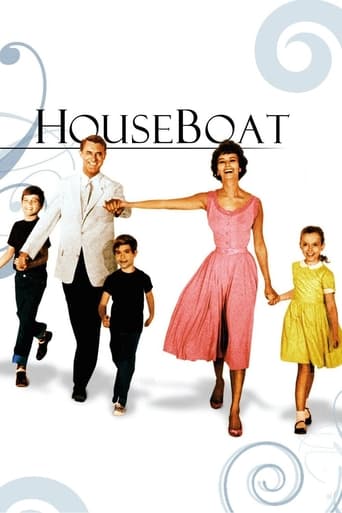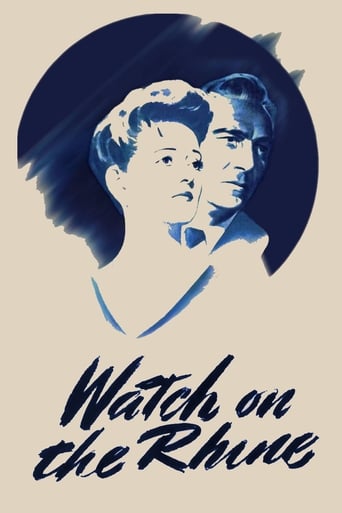
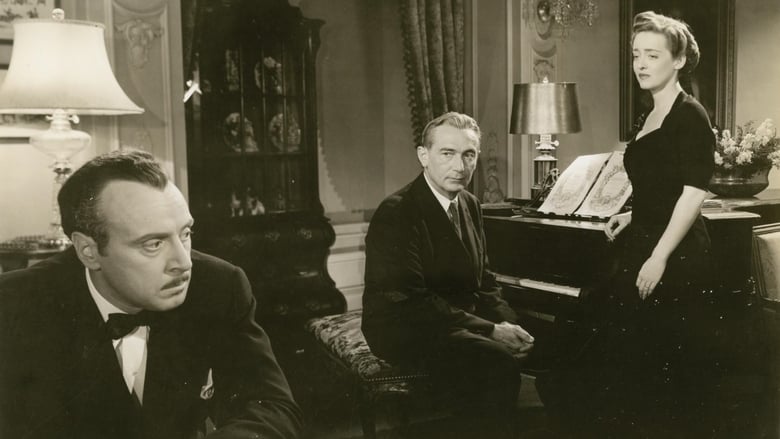
Watch on the Rhine (1943)
On the eve of World War II, the German Kurt Müller, his American-born wife Sara, and their three children, having lived in Europe for years, visit Sara's wealthy mother near Washington, DC. Kurt secretly works for the anti-Nazi resistance. A visiting Romanian count, becoming aware of this, seeks to blackmail him.
Watch Trailer
Cast
Similar titles
Reviews
The film creates a perfect balance between action and depth of basic needs, in the midst of an infertile atmosphere.
If you like to be scared, if you like to laugh, and if you like to learn a thing or two at the movies, this absolutely cannot be missed.
It really made me laugh, but for some moments I was tearing up because I could relate so much.
It's easily one of the freshest, sharpest and most enjoyable films of this year.
The stage play opened on Broadway in April 1941 and closed after 378 perfor¬mances on 21 February 1942. It starred Paul Lukas, Mady Christians and Lucile Watson. Here's where I and contemporary critics part company. Watch on the Rhine undoubtedly had an effective message for early 1940's America, but that message is now way out of date. In any event, nothing can disguise the play's many obvious shortcomings: Instant information preaching from characters who are no more than walking puppets, mouthing pretentious platitudes; situations that are pure soap opera; and, above all, dullness. The only piece of action in the entire play (and the film) occurs offstage. In this movie version, no attempt whatever is made to handle the proceedings cinematically. Herman Shumlin's direction is incredibly old-fashioned, with the players studiously hitting their marks and rattling off their lines. The groupings are stage groupings, with the actors standing around, stock still, while waiting for their cues to bring them to life. In my opinion, Lukas did not deserve his Academy Award (which should have gone to Bogart for Casablanca), but Lucile Watson should have defeated Katina Paxinou. Only Miss Watson (who admittedly has the most interesting character and dialogue) can fully overcome the play's dated propaganda, though George Coulouris makes a good stab at the impossible role in which he is miscast (he is able to convey the seedier aspects of de Brancovis effectively, but misses out on the charm). Donald Woods is ridiculously gauche (though few players would have fared better with such a part). Davis and Fitzgerald act in the somewhat overblown style then fashionable on the contemporary stage.
For all these years I have avoided watching this film because, although it had one feature I really like (Bette Davis), it appeared to about WWII along the Rhine River...and I usually detest war movies. So, last evening, I was quite delighted to learn that the movie was completely different than I had expected, and although it was about WWII and Nazis, it takes place primarily in Virginia (or is it Maryland).In 1940, before the U.S. had gotten into WWII (although the film was produced in 1943, when the end of the war was approaching) German-born engineer Paul Lukas, his American wife Bette Davis, and their 3 children Joshua cross from Mexico into the United States to visit (or live with) Davis' mother in suburban Washington. For 17 years, the Lukas/Davis family has lived in Europe, with Lukas participating in anti-Fascist activities.Will they live in peace in America? Or will Lukas continue his anti-Nazi activities through trips abroad? Of will a house guest who secretly favors the Nazi turn Lukas in for money from the Nazis. Well, the house guest won't do that, because ultimately Lukas shots him to death! At the close of the movie, one of Davis' sons announces that is planning to return to war-time Europe to find his father (Lukas). Davis, though heartbroken agrees to be brave when that time comes.Davis is excellent here, perhaps all the more so because she is playing against type. In fact, this may be one of her better roles. Lukas, an actor from Austria-Hungary, did win the Oscar for Best Actor, and he turns in a decidedly different performance than would have been given by an American actor. Lucile Watson, as the mother, was excellent here...as she always was. Geraldine Fitzgerald turns in a good performance, as does Donald Woods as the son. George Coulouris is appropriately loathsome as the evil house guest. The one performance that disappointed me was from a character actress that I have the highest respect for -- the wonderful Beulah Bondi. Unfortunately, here she plays a French great aunt, and it just seems an unnatural role for her.I give this film high marks. It rises above typical war-time movie stories, and is a superb drama. This may very well be one for your DVD shelf...a war story with a difference.
What a truly, truly rich, moving experience. I love those films made in the war years, as they mean so much and teach so much and have so much more depth and meaning. This movie is no exception. I can see why Bette Davis took the role "for its importance." It teaches so much to the American people of its time - and even now - how we don't really know what it means to be a European in an Old World so often used to the kinds of conflict that created World War II.The movie also strikingly doesn't feel like propaganda, even though the message was clearly to move its audience into action (aren't all worthwhile films aimed at personal change?). It presented a very enlightening, moving perspective on both the German menace and the Underground protagonists. Muller (Paul Lukas) explains how we will one day feel pity for those Germans who just "follow orders" and are really just fools, like De Brancovis (George Coulouris). And the perspective that Muller and the Underground may indeed be like the evil they fight - to see Muller admit he was bad. Situations like this are not black and white.The acting in this are also marvelous. Paul Lukas is an inspiration to watch. The children are so very precious, as is Lucile Watson's character.After seeing this, my sister wanted to learn more about WWII, the Underground, and the Holocaust. Through it, she's had the experience I've had so long ago.In that time, I see character, selflessness, and purpose greater than self. I love it so, and I am saddened by the blatant selfishness that defines today's society. Movies like this inspire me and make me see continually that ideals and convictions can be attained and are indeed beautiful.
All the dialog in this movie is written as if it were a sermon. Not only is the movie too preachy, but the acting is either too stiff (the children) or too hysterical (Bette Davis, in one of her weaker performances). Another weakness of the movie is that all the dialog revolves around generalities rather than specifics. Fascism and Nazis are bad! Maybe in 1943 this was groundbreaking, but today the simplemindedness of the writing makes this a story of caricatures, rather than a story of real people. The plot of the movie could have survived if this had been filmed as a film noir with unknowns in the leads instead of a melodrama for actors pining to win an Oscar.

